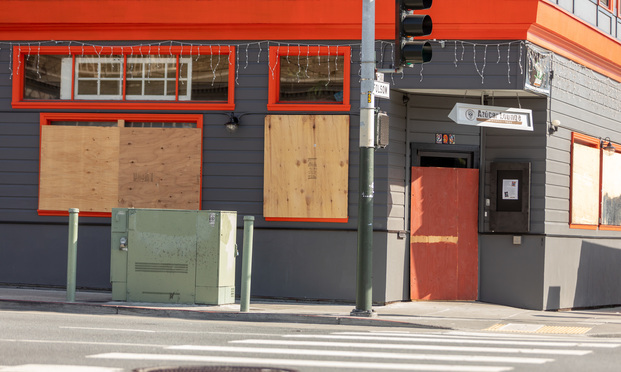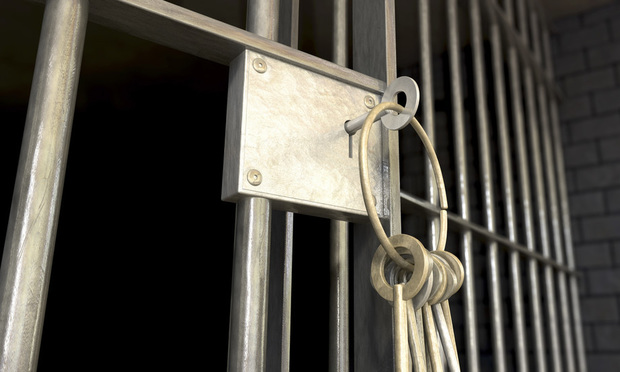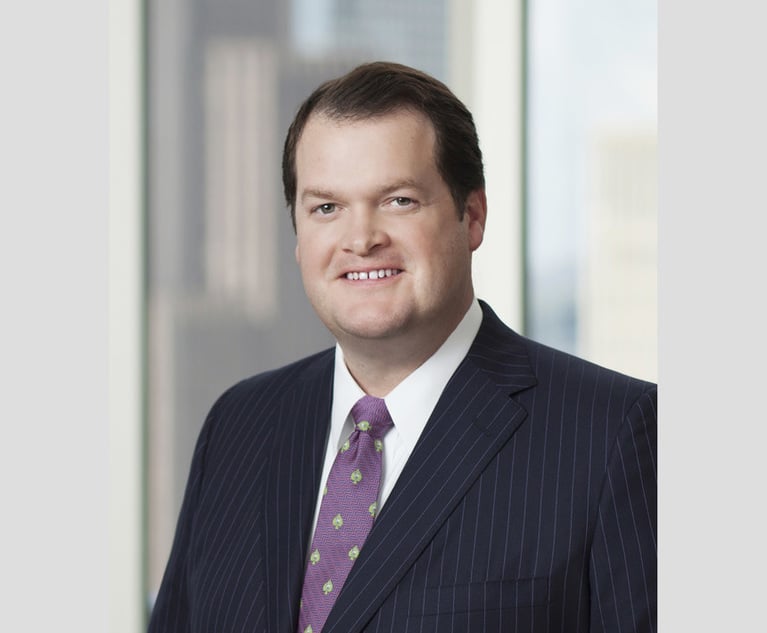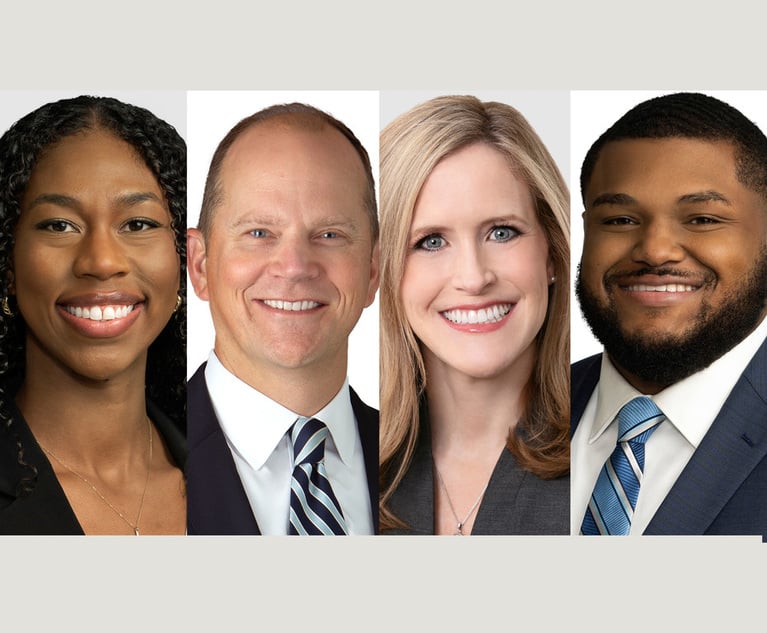Safety Versus Liberty: Litigators Push for Constitutional Rights Amid COVID-19 Restrictions
In states like Texas, New York, Georgia, Connecticut, Pennsylvania and Washington, D.C., lawyers are filing cases arguing that governments' coronavirus restrictions are violating Americans' constitutional rights.
April 10, 2020 at 01:39 PM
6 minute read
 Photo: zimmytws/Shutterstock.com
Photo: zimmytws/Shutterstock.com
During a public health threat like the COVID-19 pandemic, it's hard to win litigation claiming that civil rights are being curtailed by government safety restrictions.
But litigators are trying.
In places including Texas, New York, Georgia, Connecticut, Pennsylvania and Washington, D.C., lawyers are filing cases arguing that governments are violating Americans' constitutional rights to vote, practice religion, obtain an abortion, purchase firearms and gain release from pretrial imprisonment.
However, New York litigators Norman Siegel and Steven Hyman told the National Law Journal that courts are likely to uphold government safety restrictions as long as they follow public health guidelines.
"The balance is between public health, public safety and individual rights to liberty," said Siegel, the former head of the New York Civil Liberties Union who now works with Siegel Teitelbaum & Evans. "It makes it more difficult to challenge the restrictions or limitations on the individual right to liberty that are accruing all over the country today."
Related story: What the Legal Cases Over Ebola Quarantines Mean for Coronavirus
In some cases, though, lawsuits may have pressured governments to dial back COVID-19 restrictions. In others, even if they lose, perhaps litigators can succeed in sparking discussion about the line between public safety and individual liberties.
Here's a collection of the civil rights lawsuits that ALM publications have been covering during the pandemic.
Voting Rights
 Photo: Shutterstock.com
Photo: Shutterstock.comCivil rights litigators across the nation reacted with dismay to the U.S. Supreme Court's ruling on Tuesday in a Wisconsin election lawsuit. The high court blocked an order that would have allowed more time for absentee voting in the state's primary election. It was too close to the election date to change election rules, the court found. Because of the ruling, Wisconsin voters had to go to the polls in person during the pandemic.
Georgia, on the other hand, postponed its primary election from May 19 to June 9. In that state, a federal lawsuit has alleged that postage on absentee ballots was an unconstitutional poll tax and that mail-in ballots should come with postage-paid envelopes.
Search and Seizure
 A closed cocktail and lounge restaurant. Photo: Jason Doiy/ALM)
A closed cocktail and lounge restaurant. Photo: Jason Doiy/ALM)Litigation in Pennsylvania alleged that Gov. Tom Wolf, in shuttering many businesses, committed an uncompensated seizure in violation of the Fifth Amendment and violated other constitutional rights.
"The question we've raised is, who pays for it? You cannot idle a business, you cannot idle workers, taking a right to earn a living away from the workers, and expect those costs to be borne privately," said Goldstein Law Partners attorney Jonathan Goldstein, who filed the lawsuit and is chairman of the plaintiff business. "If the public wants businesses closed for a public purpose, then the public must pay."
Release from detention
 jail-door-with-keys
jail-door-with-keysPublic defenders in Georgia are winning the release of criminal-defendants in pretrial incarceration who are too poor to pay money bonds after filing an emergency habeas petition for 183 inmates. Lawyers in New York have also won release for a pretrial detainee, while attorneys in Pennsylvania convinced a judge to allow a convicted defendant to gain "compassionate release" from prison.
Litigation in Washington, D.C., is seeking the release of migrants kept in immigration detention centers. Similarly, a Boston federal judge granted class certification to 148 detained immigrants and began releasing them from detention in groups.
Religious liberty
 Photo: MK photograp55/Shutterstock.com
Photo: MK photograp55/Shutterstock.comTexas pastors have alleged that their county governments violated their religious freedom rights with stay-home orders that stop churches from holding in-person services. Plaintiffs counsel Jared Woodfill dismissed a mandamus action before the Texas Supreme Court, but said that he's still pursuing trial court lawsuits in multiple counties.
Meanwhile, Texas Gov. Greg Abbott issued a statewide order that labeled religious institutions as "essential," which omits them from stay-home restrictions.
Abortion rights
 Demonstrators outside the U.S. Supreme Court in Washington during oral arguments in a Louisiana abortion clinic case on March 4. Photo: Diego M. Radzinschi/ALM
Demonstrators outside the U.S. Supreme Court in Washington during oral arguments in a Louisiana abortion clinic case on March 4. Photo: Diego M. Radzinschi/ALMMultiple states are restricting abortions during the virus scare, which has prompted a wave of litigation.
For example, in Texas, the governor ordered hospitals to stop nonessential surgeries and procedures temporarily to clear up bed space for COVID-19 patients. Texas Attorney General Ken Paxton then issued a legal opinion saying Abbott's order applied to abortion procedures.
Litigation ensued and the plaintiffs initially won a temporary restraining order, only to see the U.S. Court of Appeals for the Fifth Circuit reverse the order. Reconsidering it, U.S. District Judge Lee Yeakel of Austin on Thursday again issued a temporary restraining order, although it's more narrow than his first. Paxton has promised to appeal again.
Gun rights
 Photo: topseller/Shutterstock.com
Photo: topseller/Shutterstock.comThe National Rifle Association has sued New York over its coronavirus restrictions that required firearm stores to close. The lawsuit argues that Gov. Andrew Cuomo's order is overbroad and a pretextual attack on New York residents' Second Amendment rights.
In New Jersey, Gov. Phil Murphy on March 30 changed an order to designated firearms retailers as "essential" and remain open. Before that, on March 25, the Association of New Jersey Rifle & Pistol Clubs sued the government over gun-store closures. The association claimed victory in its lawsuit when the governor amended his order to enable gun dealers to reopen.
This content has been archived. It is available through our partners, LexisNexis® and Bloomberg Law.
To view this content, please continue to their sites.
Not a Lexis Subscriber?
Subscribe Now
Not a Bloomberg Law Subscriber?
Subscribe Now
NOT FOR REPRINT
© 2025 ALM Global, LLC, All Rights Reserved. Request academic re-use from www.copyright.com. All other uses, submit a request to [email protected]. For more information visit Asset & Logo Licensing.
You Might Like
View All

Foley Partner Wrapping Up Long Legal Career, 29 Years of Chairing MLK Jr. Oratory Competition in Houston
3 minute read

Sunbelt Law Firms Experienced More Moderate Growth Last Year, Alongside Some Job Cuts and Less Merger Interest
4 minute readTrending Stories
- 1Day Pitney Announces Partner Elevations
- 2The New Rules of AI: Part 2—Designing and Implementing Governance Programs
- 3Plaintiffs Attorneys Awarded $113K on $1 Judgment in Noise Ordinance Dispute
- 4As Litigation Finance Industry Matures, Links With Insurance Tighten
- 5The Gold Standard: Remembering Judge Jeffrey Alker Meyer
Who Got The Work
J. Brugh Lower of Gibbons has entered an appearance for industrial equipment supplier Devco Corporation in a pending trademark infringement lawsuit. The suit, accusing the defendant of selling knock-off Graco products, was filed Dec. 18 in New Jersey District Court by Rivkin Radler on behalf of Graco Inc. and Graco Minnesota. The case, assigned to U.S. District Judge Zahid N. Quraishi, is 3:24-cv-11294, Graco Inc. et al v. Devco Corporation.
Who Got The Work
Rebecca Maller-Stein and Kent A. Yalowitz of Arnold & Porter Kaye Scholer have entered their appearances for Hanaco Venture Capital and its executives, Lior Prosor and David Frankel, in a pending securities lawsuit. The action, filed on Dec. 24 in New York Southern District Court by Zell, Aron & Co. on behalf of Goldeneye Advisors, accuses the defendants of negligently and fraudulently managing the plaintiff's $1 million investment. The case, assigned to U.S. District Judge Vernon S. Broderick, is 1:24-cv-09918, Goldeneye Advisors, LLC v. Hanaco Venture Capital, Ltd. et al.
Who Got The Work
Attorneys from A&O Shearman has stepped in as defense counsel for Toronto-Dominion Bank and other defendants in a pending securities class action. The suit, filed Dec. 11 in New York Southern District Court by Bleichmar Fonti & Auld, accuses the defendants of concealing the bank's 'pervasive' deficiencies in regards to its compliance with the Bank Secrecy Act and the quality of its anti-money laundering controls. The case, assigned to U.S. District Judge Arun Subramanian, is 1:24-cv-09445, Gonzalez v. The Toronto-Dominion Bank et al.
Who Got The Work
Crown Castle International, a Pennsylvania company providing shared communications infrastructure, has turned to Luke D. Wolf of Gordon Rees Scully Mansukhani to fend off a pending breach-of-contract lawsuit. The court action, filed Nov. 25 in Michigan Eastern District Court by Hooper Hathaway PC on behalf of The Town Residences LLC, accuses Crown Castle of failing to transfer approximately $30,000 in utility payments from T-Mobile in breach of a roof-top lease and assignment agreement. The case, assigned to U.S. District Judge Susan K. Declercq, is 2:24-cv-13131, The Town Residences LLC v. T-Mobile US, Inc. et al.
Who Got The Work
Wilfred P. Coronato and Daniel M. Schwartz of McCarter & English have stepped in as defense counsel to Electrolux Home Products Inc. in a pending product liability lawsuit. The court action, filed Nov. 26 in New York Eastern District Court by Poulos Lopiccolo PC and Nagel Rice LLP on behalf of David Stern, alleges that the defendant's refrigerators’ drawers and shelving repeatedly break and fall apart within months after purchase. The case, assigned to U.S. District Judge Joan M. Azrack, is 2:24-cv-08204, Stern v. Electrolux Home Products, Inc.
Featured Firms
Law Offices of Gary Martin Hays & Associates, P.C.
(470) 294-1674
Law Offices of Mark E. Salomone
(857) 444-6468
Smith & Hassler
(713) 739-1250






